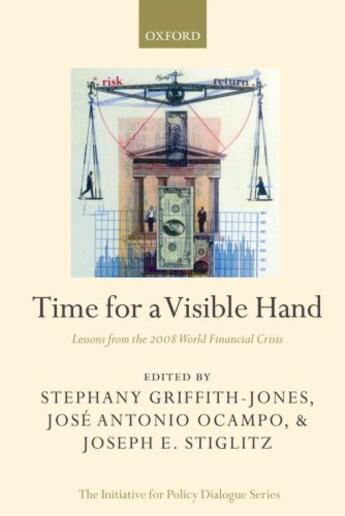-
Nombre de pages : (-)
-
Collection :
(-)
-
Genre :
(-)
-
Thème :
Non attribué
-
Prix littéraire(s) :
(-)
Résumé:
The financial crisis, which originated in developed country financial markets, quickly spread to developing countries. Governments and central banksthough taking many and costly measures were powerless to stop the global economic meltdown, as economies across the globe went into recession. The... Voir plus
The financial crisis, which originated in developed country financial markets, quickly spread to developing countries. Governments and central banksthough taking many and costly measures were powerless to stop the global economic meltdown, as economies across the globe went into recession. The depth of the financial crisis means that the world economy is in unchartered territory. How do we restore robust growth and prevent another crisis? This book aims to systematically understand current major problems in the financial system, its governance, and in its links to global economic imbalances. It explains how both market actors and regulators behavior, and the prevailing ideology of extreme financial liberalization and deregulation, contributed to the financial crisis.
This highly topical book focuses on the transparency and regulatory measures that are necessary to restore confidence in the financial system, to ensure that the financial system performs the roles that it should perform within both developing and developed countries, and to make a recurrence less likely. The book also describes reforms in the global financial architecture that might make the global financial system more stable and more equitable. The book presents sometimes radical, but specific, pragmatic, and politically feasible proposals to try to ensure a more stable, equitable, and growing world economy.
Contributions come from both developed and developing countries and are written by leading authorities in their field, including senior nationalas well as internationalpolicy makers, practitioners from the private sector, and leading academics.
Donner votre avis














